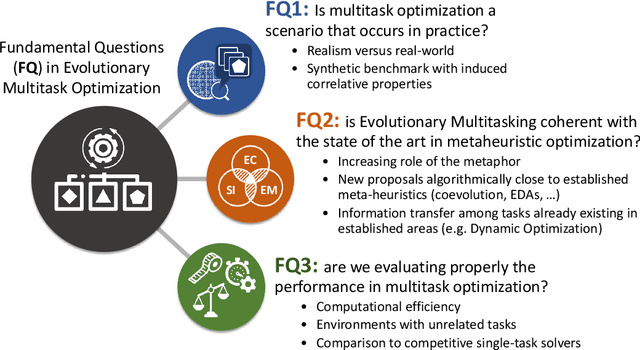Evolutionary Multitask Optimization: Are we Moving in the Right Direction?
Paper and Code
Nov 29, 2021
Transfer Optimization, understood as the exchange of information among solvers to improve their performance, has gained a remarkable attention from the Swarm and Evolutionary Computation community in the last years. This research area is young but grows at a fast pace, being at the core of a corpus of literature that expands day after day. It is undeniable that the concepts underlying Transfer Optimization are formulated on solid grounds. However, evidences observed in recent contributions and our own experience in this field confirm that there are critical aspects that are not properly addressed to date. This short communication aims to engage the readership around a reflection on these issues, to provide rationale why they remain unsolved, and to call for an urgent action to overcome them fully. Specifically, we emphasize on three critical points of Evolutionary Multitasking Optimization, which is arguably the paradigm in Transfer Optimization that has been most actively investigated in the literature: i) the plausibility of the multitask optimization concept; ii) the acclaimed novelty of some proposed multitasking methods relying on Evolutionary Computation and Swarm Intelligence; and iii) methodologies used for evaluating newly proposed multitasking algorithms. Our ultimate purpose with this critique is to unveil weaknesses observed in these three problematic aspects, so that prospective works can avoid stumbling on the same stones and eventually achieve valuable advances in the right directions.
 Add to Chrome
Add to Chrome Add to Firefox
Add to Firefox Add to Edge
Add to Edge